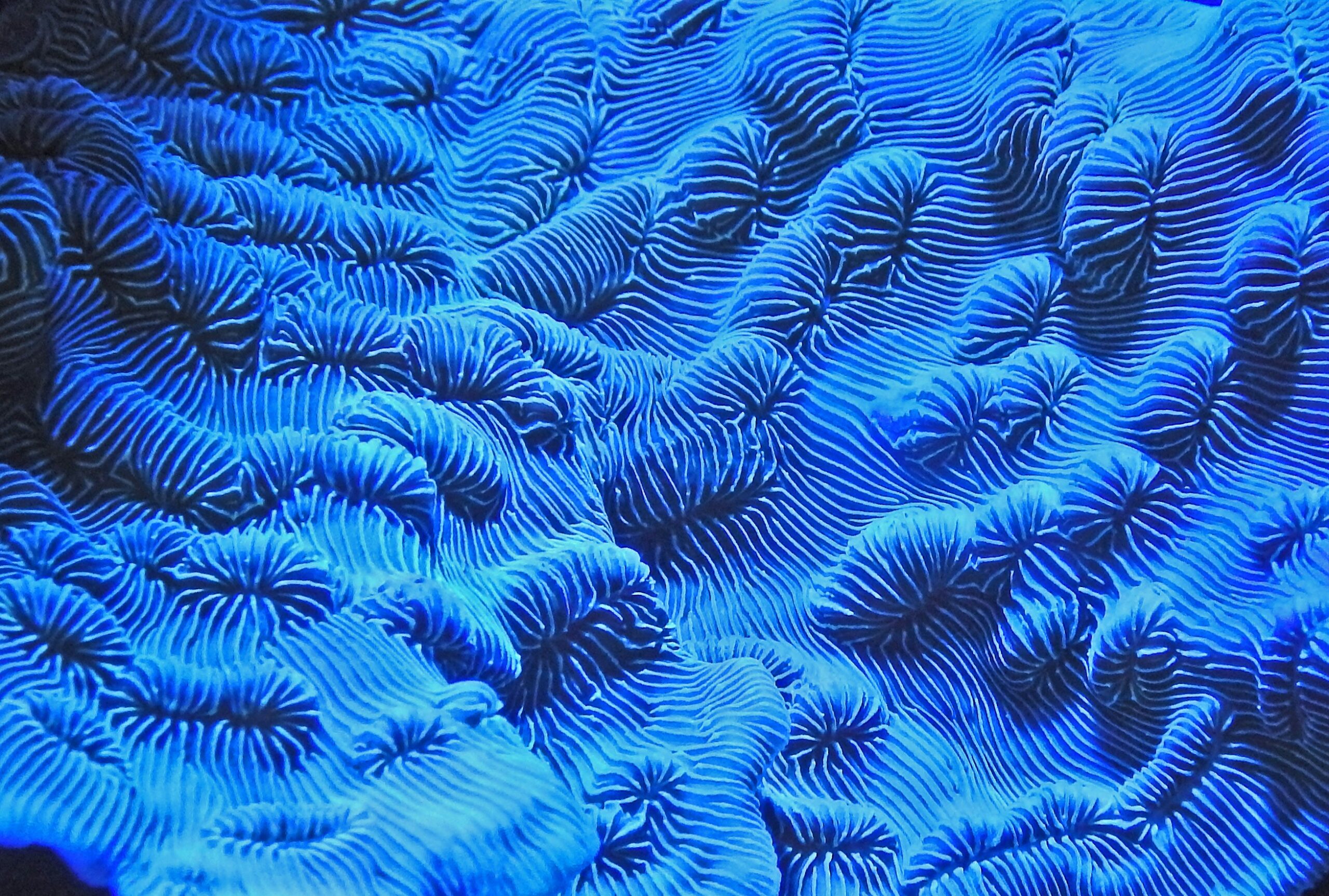Image: Davide Clode (2023)
In the final session of 2023–2024 ASCA Cities seminar on ‘Material Cities’, Yuriko Furuhata (McGill University) will give a guest lecture on “Self-Portraits of Coral: Visual Archives and Radiation Ecologies in the Anthropocene” followed by an open discussion. The session takes place on Friday 31 May 2024, 4.30-6pm in room F1.14, Bushuis, Amsterdam. For more information and registration, please contact Linda Kopitz (l.kopitz@uva.nl).
Media histories of coral reef science and resource extraction in the Pacific are intimately connected to the territorial expansionism of the Japanese and U.S. empires. In the 1930s, Japanese marine biologists began studying the living habitats of coral reefs at the Palao Tropical Biological Station in the island of Koror in today’s Republic of Palau, while the island was occupied and governed by the Japanese empire. Their research on the symbiotic relationship between coral polyps and algae laid one of the foundations for the American science of nuclear ecology that developed out of the study of the irradiated atolls of the Marshall Islands, which the United States infamously used as a site of nuclear weapons testing in the 1950s. Focusing on the technology of radioautography that American scientists used to visualize radiation, I connect this transpacific history of nuclear waste to the colonial histories of coral reef science and guano mining. In doing so, I examine how this extractive process of image-making mediated by irradiated coral specimens contributed to the production of radiation and coral reef ecologies. Thinking about the nonhuman agents of knowledge production in relation to the colonial history of mineral extraction allows us to critically reflect on what I call the underside of the Anthropocene.
Yuriko Furuhata is Associate Professor and William Dawson Scholar of Cinema and Media History in the Department of East Asian Studies at McGill University. Her first book, Cinema of Actuality: Japanese Avant-Garde Filmmaking in the Season of Image Politics (Duke University Press, 2013), won the Best First Book Award from the Society of Cinema and Media Studies. Her second book, Climatic Media: Transpacific Experiments in Atmospheric Control (Duke University Press, 2022) explores the geopolitical conditions underpinning environmental art, weather control, digital computing, and cybernetic architecture in Japan and the United States. She is currently completing a new book project, titled Visual Grammars of Deep Time: Archipelagic Archives of the Anthropocene, which examines sets of scientific atlases, photographs, and films of fossils, clouds, snow crystals, and corals in relation to the settler colonial histories of geosciences in Japan, the Pacific, and North America.
Readings
Furuhata, Yuriko. 2017. “Architecture as Atmospheric Media”. In Media Theory in Japan, 52-79. Duke University Press. https://doi.org/10.1215/9780822373292-003
Furuhata, Yuriko. 2022. “Introduction.” In Climatic Media, 1–18. Duke University Press. https://doi.org/10.2307/j.ctv28hj18z
The readings can also be accessed via this link.
Co-organized by Carolyn Birdsall, Linda Kopitz and Alex Gekker and the Sea Mediations Symposium.
